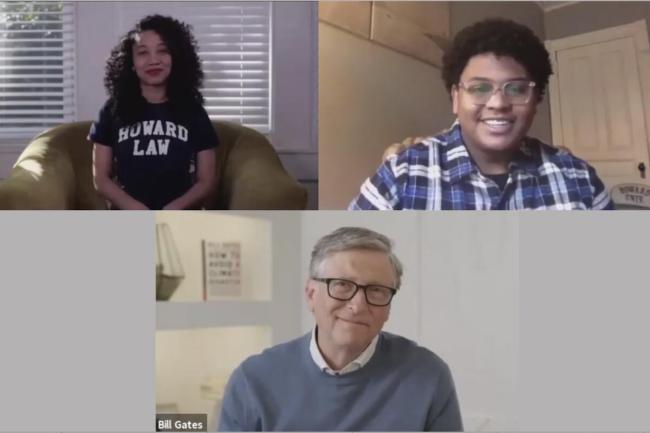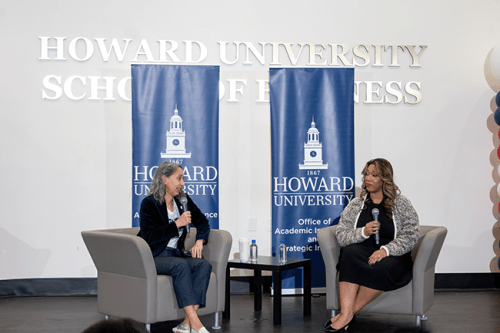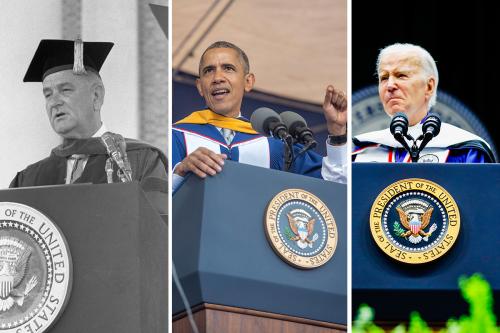WASHINGTON – Howard University students, staff and faculty joined Bill Gates Wednesday for a discussion about his new book titled, “How to Avoid a Climate Disaster.” The discussion, moderated by CBS News correspondent and Howard alumna Michelle Miller, provided some key takeaways about what individuals, advocates and governments can and must do to drastically reduce the world’s greenhouse gas emissions to zero.
The event engaged audiences from Howard University, American University, Georgetown University and George Washington University. Students from each of the universities submitted questions for Gates to answer.
Gates discussed the need for governments, corporations and individuals to prioritize going green. He named several industries that make up most of the world’s carbon emissions, including transportation, electricity, manufacturing, agriculture, and heating and cooling. As an advocate for addressing climate change by investing in a solution, Gates also admits to being a part of the problem. He recognized that his air travel was producing high emissions. That’s when he made the switch to biofuel to reduce his carbon footprint.
“My Breakthrough Energy effort alone isn’t going to do the trick,” said Gates. “We need the government and advocacy. I’m trying to do my part because I’ve seen the damage it’s done.”
Nasya Dodson, a 2L at Howard University School of Law and president of the Energy and Environmental Law Society, asked Gates about the importance of including a race and class analysis in environmental policies and advocacy.
“African-Americans breathe 63 percent more pollution than they make compared to their non-Hispanic white counterparts who breathe 17 percent less air pollution than they make,” said Dodson. “What part of making our governments, employers and ourselves accountable involves recognizing the racist, capitalist practices that have created these environmental inequities?”
“The climate movement and environmental justice movement do need to have a better dialogue than they’ve had,” Gates responded. “The climate movement hasn’t been as sensitive to how we can remedy some of these historical injustices.”
Senior biology major Tyler Colon also asked Gates about the economic costs of going green, also known as the “green premium.”
“How can we offset the ‘green premiums’ that hinder everyday individuals from purchasing green technologies?” asked Colon.
“We’ve done some of that by having the tax credit for electric cars, but if you look at those, it’s not across the entire economic spectrum,” said Gates. “Maybe there needs to be a different credit amount for people across the economic spectrum. At the end of the day, affordability is the metric we’ve got to win on.”
Gates’ book, “How to Avoid a Climate Disaster: The Solutions We Have and the Breakthroughs We Need,” is out now. For more information, visit Penguin Random House.
###
About Howard University
Founded in 1867, Howard University is a private, research university that is comprised of 13 schools and colleges. Students pursue more than 140 programs of study leading to undergraduate, graduate and professional degrees. The University operates with a commitment to Excellence in Truth and Service and has produced one Schwarzman Scholar, three Marshall Scholars, four Rhodes Scholars, 11 Truman Scholars, 25 Pickering Fellows and more than 165 Fulbright recipients. Howard also produces more on-campus African-American Ph.D. recipients than any other university in the United States. For more information on Howard University, visit www.howard.edu.
Media Contact: Misha Cornelius, misha.cornelius@howard.ed





